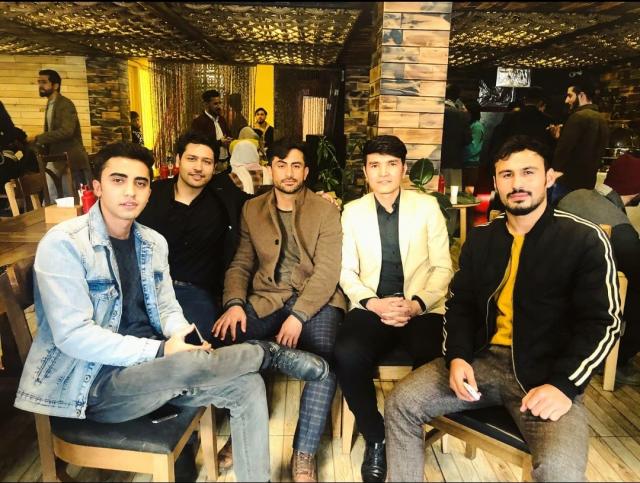Jalal Ahmadzai, his parents and two siblings, fled Afghanistan in August 2021 after the Taliban took control of the country. Now living in Craigieburn and working as an interpreter for AMES Australia, Jalal spoke with Helena Abdou about his experience and shared an open letter to shed light on light on the plight of those who fled from Afghanistan.
Jalal Ahmadzai says he will always dream of the day he can return home and wonder the streets of Kabul.
The 23-year-old, his parents and two siblings are among the hundreds of thousands of Afghan refugees who fled the country after the collapse of the Afghan government in August last year.
Ten months on, he can still clearly recall the day Kabul fell to the Taliban and mayhem ensued.
“It started off as a normal day, we went to work and school,” he says.
“Towards about 10 or 11am, there was a bit of chaos starting around the city, you could feel the tension.
“There was nothing wrong, there was no fighting, but there was just a commotion.
“People were just in a hurry and you could feel that something was wrong.
“And then we got the news that the Taliban had apparently arrived at the gates of the city.”
Jalal was working at a bank in Kabul when it was swarmed by people in a bid to withdraw their savings.
“People had money deposited in the banks, and they were worried about the safety of the money so people wanted to withdraw the money,” he recalls.
“But we couldn’t give them money because the bank didn’t have enough liquid money to give out.
“Our team said that we need to evacuate the bank through the backdoor in groups of two or three because people are growing increasingly mad.”
Not long after he left work that day, Jalal learnt that the president had fled the country.
“With the news of his escape, the entire army collapsed, the army that was built over 20 years, collapsed in a matter of hours,“ he says.
That evening, the Taliban vehicles rolled into the city and thousands of people headed for the airport in a desperate attempt to flee.
“It was like a stampede at the airport,” Jalal says.
“The first three or four days was very bad, everyone rushed towards [the airport], people who had passports, people who didn’t have passports, people who had nothing, no tickets, no visa.
“People were going to the airport with their electricity bill.”
Jalal and his family decided to wait before making their move.
“We left the country about 10 days after the fall of the government and went to neighbouring Pakistan,” he says.
After fleeing to Pakistan, Jalal and his family decided to try to get to Australia.
“We heard about Australia’s humanitarian visa, and then we applied for it and we just got it. I think it was because we lived here before for three years in 2012,“ he says.
Upon arriving in Australia for the second time, Jalal applied for work as an interpreter with AMES Australia, an organisation that sought to help refugees and asylum seekers with employment services and training.
“When I arrived I started volunteering with AMES … I was one of the few refugees who was interpreting at the time … and because there was a big influx of refugees, and a lot of them could not communicate in English, I walked up to them and said I could help out for a couple of hours a day.”
After a few months, he secured a job with AMES.
As much as Jalal is enjoying his “wonderful” life in Australia, his thoughts don’t stray far from life back home.
In open letter to highlight the plight of those who fled Afghanistan, Jalal wrote: “Abrupt change, uncertainty and the unknown often strike fear into the hearts of humans.
“When events take a turn for the worse at a time when one had been planning the complete opposite, it naturally puts one in a state of shock, blurs one’s judgment and makes one lose track of events that follow.
The swift collapse of the Afghan government on August 15, 2021 made all of that a reality for all the Afghan people.“
Reflecting on his new life in Australia, Jalal wrote: “Many of us succeeded in escaping the darkest regime, leaving behind our families, friends, and loved ones
“Not only that, we left behind our lives, our dreams of graduating and serving our country.
“We all can continue our lives outside Afghanistan peacefully, but there will always be a sadness engraved deep in our hearts.
“We will be strangers wherever we go and the feeling of being homeless will never leave.
“I will always dream of the day I can go back to my home and wander through the streets of Kabul.“









